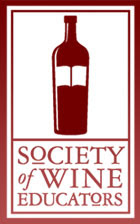Wine Spectator’s upcoming August 31st issue will be their Restaurant Awards issue, and with that upcoming event, they’ve posed a question for the blogosphere online related to restaurant wine service. It is interesting to see just how many people are out there not at all pleased with the approach restaurants take toward wine. Some of the gripes are:
1) Overpriced wine lists
2) No vintages on lists
3) If vintage is listed, that particular vintage is out of stock or has changed
4) Inadequate glasses
5) Ill-trained wine staff
6) Overbearing, unscrupulous sommeliers
The list goes on and on. It leaves me with one simple question: “what the #$%^ are restaurant owners thinking about when they put these lists together?” And what are they thinking when they hire some of these sommeliers?
I used to be the bar manager for a fairly new restaurant almost a decade ago, and the challenges I faced then are still out there now. Unfortunately for me then, I was too inexperienced to really do much in the way of putting a good program together for the restaurant I managed, but I know I could do a more effective job now. Retail does that to a person, I guess.
The problem with most wine lists are that they are NOT the total creation of the sommelier or bar manager, but a product of whatever distributor offers the best service to the establishment. Many of the wines on a particular list usually come from one, two, or at the most three purveyors, out of convenience. As a retail buyer, I have 13 distributors. Writing checks to 13 distributors would be a pain in the rear for a small restaurant. However, the benefits of using all the distributors you have should far outweigh the drawbacks. The selection you are able to create, as well as a more proper pairing with your menu are huge pluses for your customers and your reputation.
Glassware is a big cost. Most dishwashers are inadequate to wash crystal stemware such as Riedel or Speigelau. And even most barbacks or bartenders don’t really have the time to care for these glasses. Yet having enough on hand to placate the more discriminatory wine drinkers out there would mean a big difference in a restaurant’s wine sales. Even finding a sturdier crystal stemware “all-purpose” glass would be beneficial. Speigelau is sturdier in construction to Riedel because it is one piece (Riedel glasses are usually the bell fused to a separate stem). Or using the new Riedel “O” Series would be a plus.
Training the wine staff is a no-brainer. You have sales reps who, for the most part, are fully capable of training your staff, not only on product knowledge, but the ins-and-outs of presenting wine at the table. Knowing the menu AND the wine list usually means greater revenue for the establishment, which is why they are in business in the first place, right?
And pricing, yikes! Is this the big pain. I left the restaurant business primarily because I didn’t buy into the whole 3Xretail mark-up. Most of the clientele these days are pretty savvy about wine, so they usually know what they can pay for a bottle at their local retailer. To pretend like they don’t know is pretty naïve. Why charge more, when you can charge less and sell more? It will keep inventory down the more product you move, which saves a lot of money in the long-run. And having GOOD QUALITY, INEXPENSIVE choices for the clientele, ones that will be complementary to the menu, will both impress, and satisfy.
Isn’t that what restaurant owners want?
And if you are paying big bucks for a sommelier, you should be able to find one that isn’t an ass to the customers. A sommelier’s job is to ENHANCE the patron’s experience at their restaurant, not INHIBIT it? Right? Sommeliers should be able to utilize their wine lists to build trust with their customers, and complement the chef’s cuisine. No suggestion should be made simply for profit. And only use vintages for older selections. Make sure that the wait staff KNOWS what the current vintage being offered is, so that the wines listed are from trustworthy producers that you and your customers know will be good. If the wine’s vintage is inferior, get rid of it and get something else. Communicating what the bar has and does not have is key.
And NEVER open a bottle at the bar or in the server station. Always open it at the table, in front of the customer. Sommeliers should ask the question, “may I check the wine for you,” if you feel that the customer is uneasy with YOU. And always take the damn bottle back WITHOUT ANY B.S. or PROTESTING. If the customer says it’s no good (Corked, Cooked, etc.), IT’S NO GOOD. Pleasing the customer is the ultimate goal.
Why is all this so damn difficult?
Subscribe to:
Post Comments (Atom)











No comments:
Post a Comment